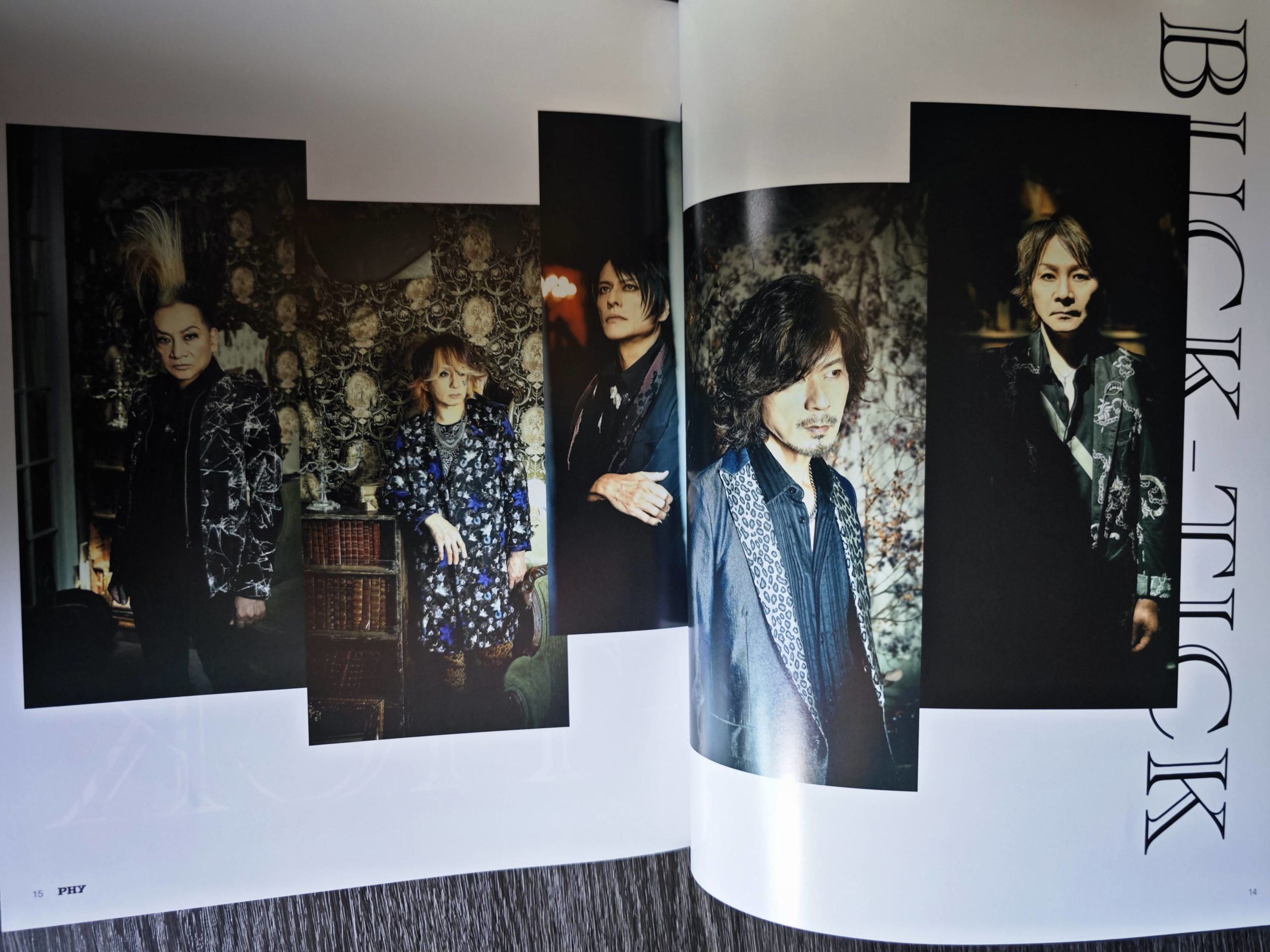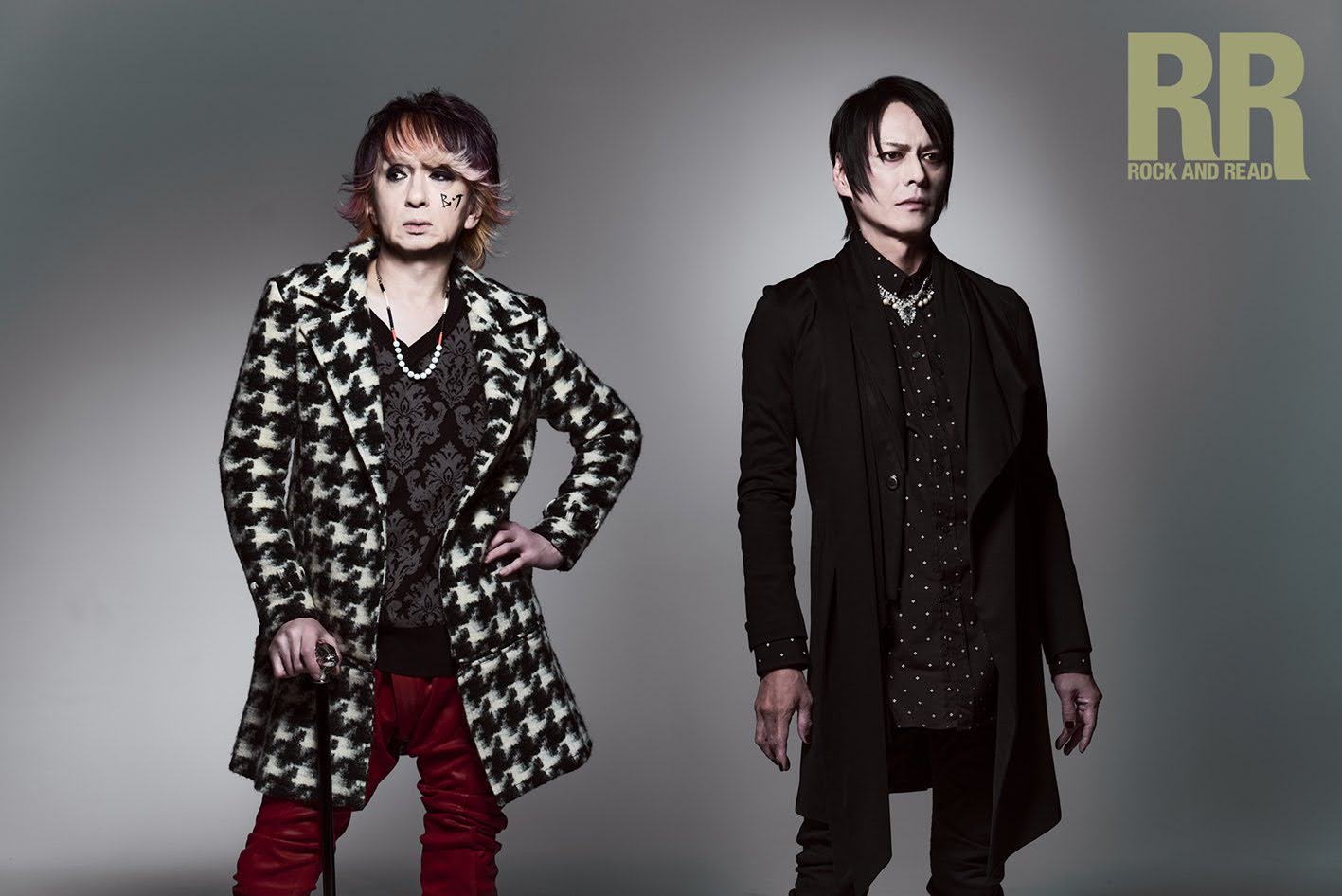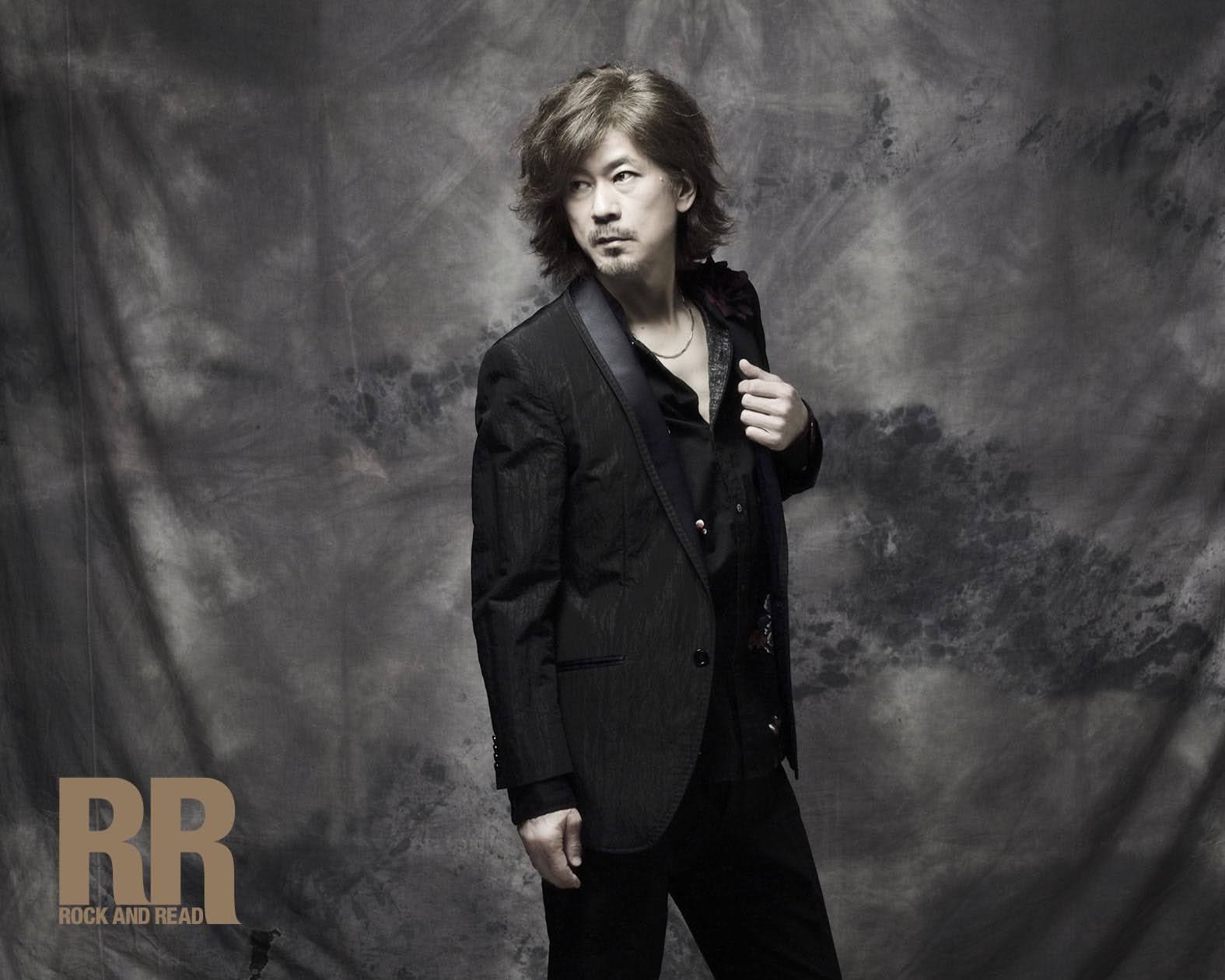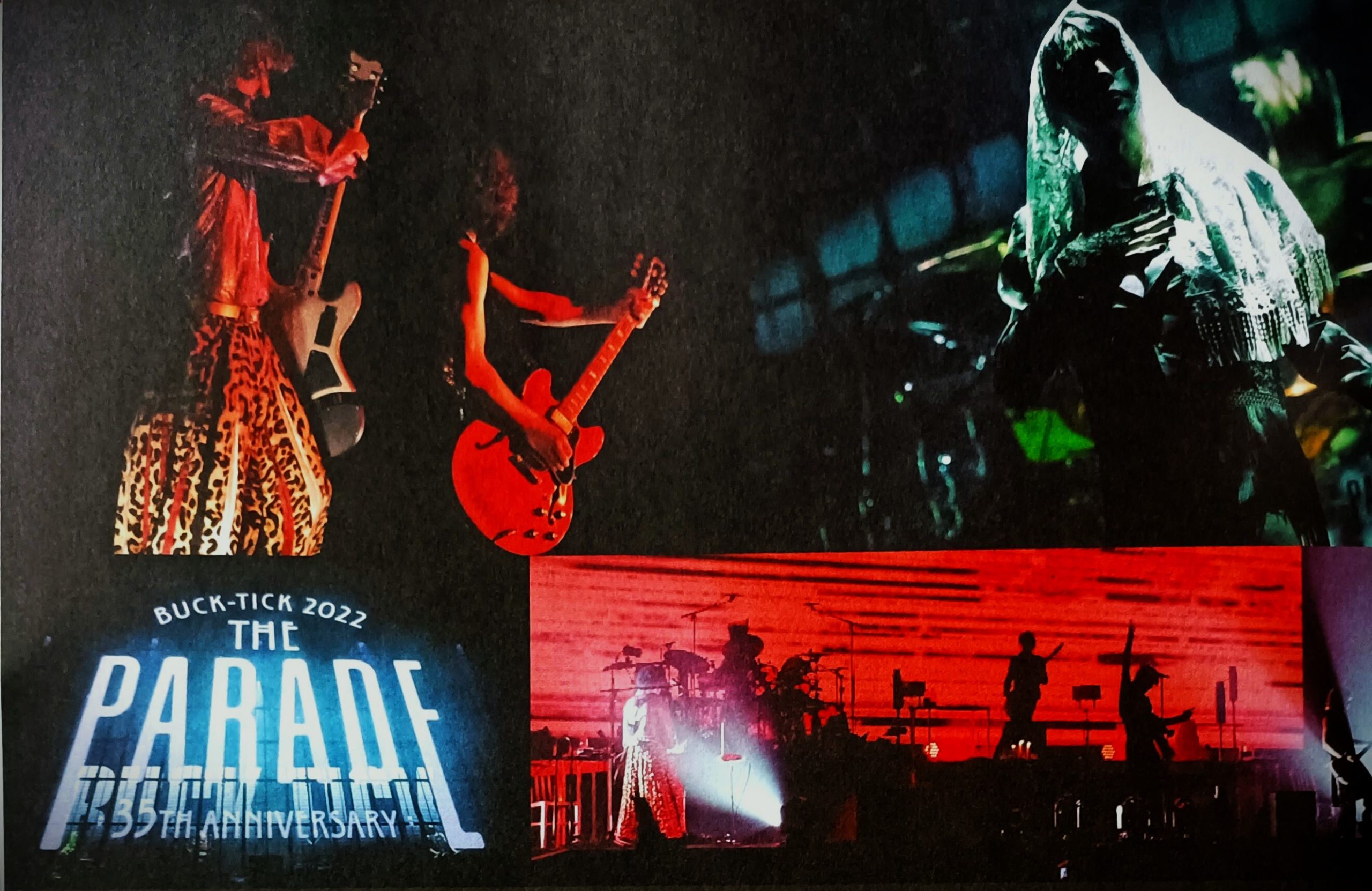
BUCK-TICK’s 異空 -IZORA- Tour Final,
a magnificent show complete
Ongaku to Hito
23 July 2023
text by Ishii Eriko
photos by Seitaro Tanaka
【LIVE REPORT】
〈BUCK-TICK TOUR 2023 異空-IZORA-〉
2023.7.23 at Tokyo Garden Theatre
I watched the closing show of the masterpiece tour, BUCK-TICK TOUR 2023 異空-IZORA-. The previous time I saw them was on 19 April, at their Hachioji show so in short, of this19-show tour which visits a total of 17 locations, I’m only watching the first and last concert dates. I don’t know what happened along the way, what trials and errors and adjustments they made. But what I know for sure is that the first show and the last looked very different from each other. And that’s despite no changes with the videos and graphics projected on the screen, and the set list being more or less the same.
If I had to say, it’s so different that it’s as good as “a concert unveiling of a new show” versus “a theatre show”. If the purpose of a tour is to play their new songs live, then I think that’s something they have perfectly executed since day one. The 14-track long 異空 -IZORA- album underwent a reinterpretation in the two-hour-long concert.
They connected new songs to old; lining up the intense Showa-era flavoured song, THE SEASIDE STORY next to the distinctive city-pop song Mugen LOOP -LEAP-, and bringing in Jonathan Jet-Coaster right before the highlight of the main show Taiyou to Icarus with both songs sharing a similar theme. As written in my report of the first day, the band is capable of showcasing their work in this format precisely because they’ve kept going for 35 years and innovating throughout this time.
On top of that, what else changed to turn a “concert” into “theatre”? The issue of familiarity is of course one; the five members breathing as one, their bodies gradually growing more and more accustomed to the new songs. But what stood out above all of that was Sakurai Atsushi’s power of expression and performance.
Like Sayonara Shelter in the first half. This song was born from the imaginings of present-day Ukraine, and with each iteration on this tour, the performance of it turned into theatre. Sakurai cradles a small child, escapes to a safe place, dodging bullets as they fly past before returning fire himself with a gun in hand; these scenes captivate the audience as he sings.
Unlike a choreographed performance, he had, in short, fully immersed himself in it. The fear that one day the mic stand he holds at the end would look like an actual rifle seeps in. With the way the performance is executed, the pale moonlight shining from the screen in the back becomes more than a mere visual effect and somehow turns into an essential backdrop. Therein lies the difference between a simple performance and a dramatisation.
The next song which followed was Campanella Hanataba wo Kimi ni, and coming right before it was a short monologue where he said, “Father, mother, it’s going to rain tonight again. Sparkly gold rain is……” His words bring forth the image of bombs flying between Ukraine and Russia. Would the audience have been just as taken aback and drawn to the scenes on stage if he instead said, “With love from the far east, please listen to this song.”?
He performs wholeheartedly, turning one reality into a beautiful dream, swallowing both fact and fiction to turn them into one story. The singer who has surpassed the song ruled over the stage.
And there was Boogie Woogie in the midst of it all. On the first day of the tour, in the MC right before the song which sums up their pre-debut life, Sakurai said they’re “recreating a story from 35 years ago”. But now, on this final day of their tour, he changed his words to the following.
“How long can we keep going…… I wonder, how long can we keep going? Until death? No, even after death. We will do this even when we turn into ghosts. They are waiting! They are waiting!”
That was the moment a nostalgic song of the past became a song of the neverending future. Because no matter how far they run, no matter the city they head for, we (= they) who eagerly await them will never disappear. “Boogie woogie! Shoo-be-doo-ba!” These symbolic lyrics resound like an important chant.
This irreplaceable worldview will remain and persist even after the physical body has disappeared and turned into a soul. A man, who in an interview immediately after the album’s completion, said that he was still struggling, that it was hard to live, and that he was as depressed as ever, was the one to make such a powerful declaration.
I don’t think there’s any doubt that this tour is what made Sakurai talk about the future. There were a number of instances when I wondered whether the album, 異空 -IZORA- was really that positive a creation to begin with. Even though there are songs about loneliness and war, the beauty and sacredness of what they have accomplished are carried forth through his sombre and earnest performances. I believe catharsis would also come about amidst this.
The highlight of the main show was Taiyou to Icarus, where the protagonist rushes through to face death head-on. During this performance, Sakurai faced the radiant screen with outstretched arms. The sanctity of his silhouette remains unforgettable even now.
Four songs were played in the encore with old songs interspersed, once again leading us into the world of 異空 -IZORA-. Even though he’s only putting on makeup and dressing the way he likes, the faceless people all around are laughing. Even if such is the confession of the protagonist Hizumi who has no way out, it all slowly gets cleansed away at the end with Na mo Naki Watashi.
A single stalk of a white flower on screen. Midway through, it quietly starts to sway. The moment Sakurai pulls his outfit across his shoulder with a big swish, a blizzard of brightly coloured flowers rained down on the stage. Come to think of it, this move was not present in the first show. With this so-called visual effect showing perfect synchrony with the performer’s gestures, the magnificent show was made complete. It’s so beautiful that it left me speechless. This is the difference between the start and the goal. The difference between a “concert” and a “show”.
And just like this, they continued their way through their 35th anniversary year. The closing day is finally approaching. According to the extra news pamphlet which was distributed after the concert, BUCK-TICK TOUR 2023 異空-IZORA- FINALO will be held at Gunma Music Centre on 17 and 18 September.
The world of their new album evolved so much in the course of just one tour. While BUCK-TICK still continues to evolve on stage even now. I can only wonder what their final form will look like.
_____________________________________________________________________________
NEW ALBUM『異空 -IZORA-』
2023.04.12 RELEASE
■ Limited Edition Version A / B (Blu-ray / DVD)
■ Regular Edition
■ Limited Edition LP Version
■ Limited Edition Cassette Tape
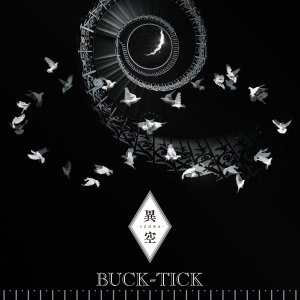
〈CD〉※Same for both Limited and Regular editions
01 QUANTUM Ⅰ
02 SCARECROW
03 Warukyuure no Kikou
04 Sayonara Shelter ー destroy and regenerate-Mix
05 Ai no Harem
06 Campanella Hanataba wo Kimi ni
07 THE FALLING DOWN
08 Taiyou to Icarus
09 Boogie Woogie
10 Mugen LOOP -IZORA-
11 Noraneko Blue
12 Hizumi
13 Na mo Naki Watashi
14 QUANTUM Ⅱ
〈Blu-ray/DVD〉 ※Limited edition only
・Taiyou to Icarus MUSIC VIDEO
・Mugen LOOP MUSIC VIDEO
_____________________________________________________________________________
〈BUCK-TICK TOUR 2023 異空-IZORA-〉
Friday, 1 September 2023 — Nippon Tokushu Tougyou Shimin Kaikan, Forest Hall (ex. Nagoya Civil Hall) ※Substitute
〈BUCK-TICK TOUR 2023 異空-IZORA- FINALO〉
Sunday, 17 September 2023 — Gunma Music Center
Monday (holiday), 18 September 2023 — Gunma Music Center
〈BUCK-TICK TOUR 2023 異空-IZORA- ALTERNATIVE SUN〉
Friday, 20 October 2023 — KT Zepp Yokohama
Thursday, 26 October 2023 — Zepp Nagoya
Saturday, 28 October 2023 — Zepp Fukuoka
Saturday, 4 November 2023 — Zepp Osaka Bayside
Sunday, 12 November 2023 — Zepp Sapporo
Sunday, 19 November 2023 — ToyosuPIT
Saturday, 2 December 2023 — Sendai GIGS
Saturday, 9 December 2023 — Zepp Haneda



































































